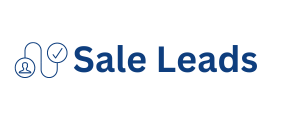Google ads tend to fall a priori in the digital advertising industry as great destabilizers for the sector. First was the one from two years ago in which it was said that by the end of 2021 third-party cookies would disappear from your Israel Mobile Database Chrome browser. And more recently that it will not build alternative identifiers to track people as they surf the web. But although at first the concern in the industry appeared. Quickly, we see that its strength is repeated to adapt to the new order of things and respond to the challenges that arise.
In this game of chess publishers have to move quickly to optimize their publishing businesses in the cookie-free world to come. And how can they do it? Focusing on the collection of a greater volume of user data in order to better understand the readers of their sites. Because this will not only help Brother Cell Phone List them cushion the blow, once third-party cookies disappear completely, but it will also allow them to gather audiences that are of interest to brands. The philosophy described reflects the interest of publishers in putting the user at the center of their strategy. A centrality that passes through offering them an attractive design of their site with quality content, in addition to having a marketing plan focused on people through, for example, content recommendations offered by native advertising, as well as with other tools that provide information on user attributes based on their profile according to browsing behavior or their interests, with which it is easy for users to provide them with their personal data, as happens with social networks.
In this regard, I wanted to highlight four ways to obtain personal information from readers. First, I would point out the importance of offering more transparency in the process. Even more so considering that in recent years users have become increasingly protective of their personal data. And this especially in Spain where half of the users (52%) are concerned about sharing personal information on the internet. So many percent percent that it is also five points above the world average. If readers’ emails are to be collected, publishers will need to offer them a significant level of control over their data, which is attractive enough to them, as well as greater transparency on how it is used after they log into your site. corresponding site. At the same time, it is important to note that actively engaging people in the value proposition of collecting their data is an opportunity for publishers to demonstrate their commitment to providing a positive user experience.
Second, I would point out the paywalls. It is true that at the beginning of the internet era, publishers did not think about whether or not to offer their content for free to anyone who was on their website. Now, however, as paper and ad revenue are falling, publishers can no longer afford to be passive. Along these lines, as I said, an interesting tool is paywalls. Among these there are different options. There are, so to speak, ‘hard’, in which all the content of the website is subject to a paid subscription. As well as those of the ‘flexible’ type, which allow people to access some content without the need to register, but which nevertheless require a login once users reach a number of views of free articles. And finally, a hybrid model, which is based on a combination of free access and paid content. A question that I think the publishers themselves should determine, because, on the one hand, they are the ones who can establish the best way to value their content and thus demonstrate it to readers. And on the other, since by having information on the behavior of users on their site, they will be able to decide what type of payment wall would encourage more people to register.
Continuing with the own data collection options, there is the well-known and no less effective newsletter, which has also experienced great growth in recent months. This resource helps publishers collect their own data in different ways. First, it allows them to identify people who are interested in a certain type of content. Secondly, because they can collect your emails. And finally, because publishers can use the newsletter subscription process to obtain more information about the topics that interest each user, thus enabling them to offer them personalized experiences that increase their engagement with the site.
At the same time, newsletters can be very valuable for generating income. LiveIntent, for example, an email marketing platform, reported that last year its local media customers expect a 45% increase in impressions and a 32% increase in revenue from their newsletter. Finally, I wanted to point out the great validity of obtaining personal information about discounts via email. First of all, because discounts have a great power of attraction. In fact, offering users a discount in exchange for their emails is a relat

